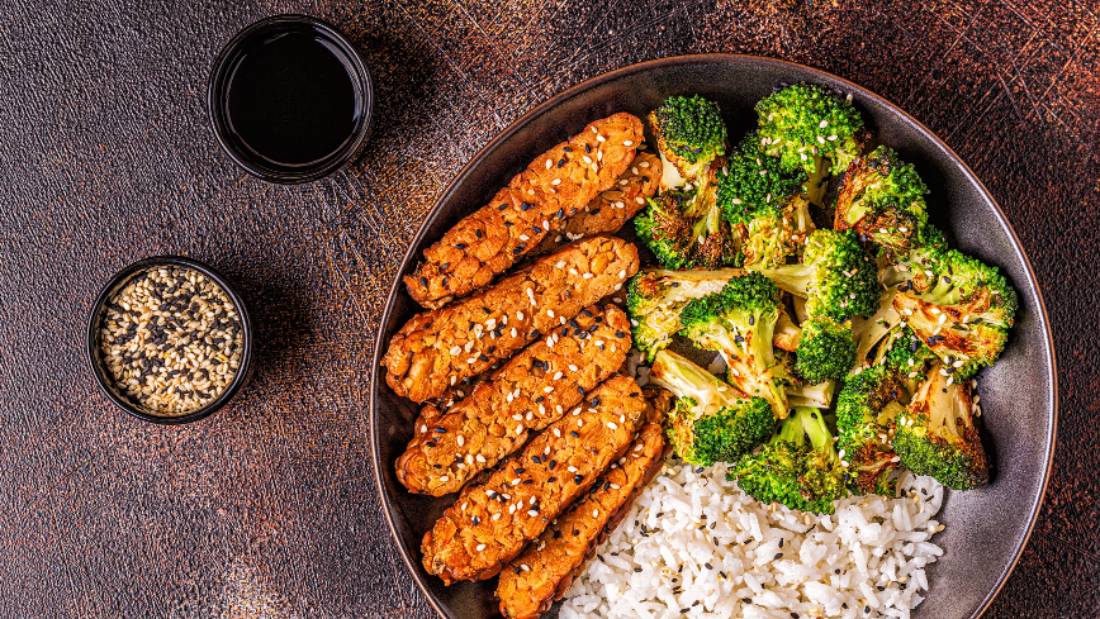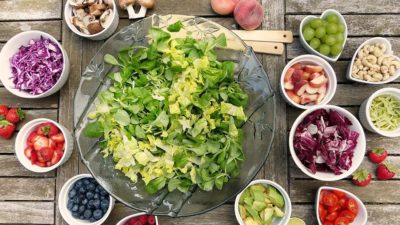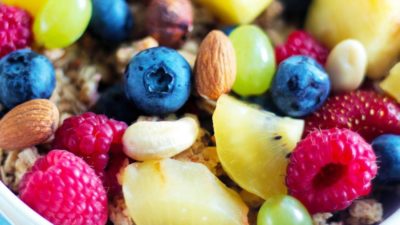There’s Zomething About Zinc

Often overshadowed by discussions of B12, vitamin D and omega-3s, zinc is an important mineral needed for vital reactions in the body. We need it for processing carbohydrates, fats and protein from food and for wound healing. It can help strengthen the immune system and make us better able to fight colds and infection – which is obviously important in the midst of a pandemic and as flu numbers rise. Zinc is also crucial to healthy vision and for male reproductive health as it increases sperm count and sperm mobility.
The recommended daily intakes for zinc are 7-8 milligrams for women and 9.5-11 milligrams for men, but are vegans getting enough?
A 2013 meta-analysis of studies looking at the effects of plant-based diets found that “Populations that habitually consume vegetarian diets have low zinc intakes and status.” They noted that there is so much variation in plant-based diets that conclusions are hard to draw (hence the terms vegetarian and plant-based being used interchangeably). In support of the earlier meta-analysis, a 2020 systematic review found that a vegan diet was associated with a lower intake of zinc. But we vegans are not alone. The 2016 National Diet and Nutrition Survey confirmed shortfalls in both sexes and every age group across all diets.
So regardless of what’s on our plate, it would make sense to pay attention to our zinc intake to make sure we’re getting enough. The good news is we don’t need to fork out on a supplement – with a little planning, it’s easy to make sure you get enough zinc following a healthy plant-based diet.
Here are seven of the best foods to help you meet your zinc target:
1. Baked beans
Half a can of baked beans contains around 4.79 milligrams of zinc, which is a big chunk of your daily requirement. And if you have your beans on wholemeal bread, which contains about 0.64 milligrams per medium slice, you’ll be well on your way to meeting your daily goal.
2. Oats
One cup of oats contains about 2.95 milligrams of zinc, so starting the day with porridge or overnight oats will put you on the right track.
3. Tofu and tempeh
Tofu contains 2.58 milligrams of zinc per 100 grams and tempeh a terrific 3.24 milligrams. These can be combined with wholewheat noodles or brown rice for a zinc-tastic Asian-inspired dish.

4. Quinoa
Not only is quinoa the queen of protein, it’s also packed full of zinc. A medium portion of 180 grams contains around 1.96 milligrams.
5. Lentils
No vegan’s pantry would be complete without a jar of lentils. They’re a plant-based staple and also happen to be a great source of zinc. However, the bioavailability of zinc may be reduced due to the phytates in pulses, grains and seeds so it’s a good idea to soak them beforehand (if you’re cooking them from dry).
6. Pumpkin seeds
Pumpkin seeds are tiny pods of perfection. They contain so many nutrients that it’s no surprise they’re also an excellent source of zinc. They’re great added to muesli or sprinkled over salads, or just eaten as a snack with the next item on the list.
7. Cashew nuts
A small handful of cashews (28 grams) contains about 1.64 milligrams of zinc, as well as healthy fats, fibre and other nutrients, making them the perfect snack. When blended with soya milk and some nutritional yeast, cashews make a great “cheesy”, creamy and indulgent sauce which is the perfect match for wholewheat pasta, which contains around 2.64 milligrams of zinc in an average portion.
So as you can see, it’s not hard to meet all your zinc needs. You could have a huge lunch of baked beans on wholemeal bread with tofu and tempeh chunks, topped with a creamy cashew sauce and a sprinkling of pumpkin seeds. Or you could take the slightly more measured approach of starting your morning with some oats, getting one or two good sized portions of beans a day, eating wholemeal bread and pasta, and snacking on nuts and seeds. The choice is yours!







